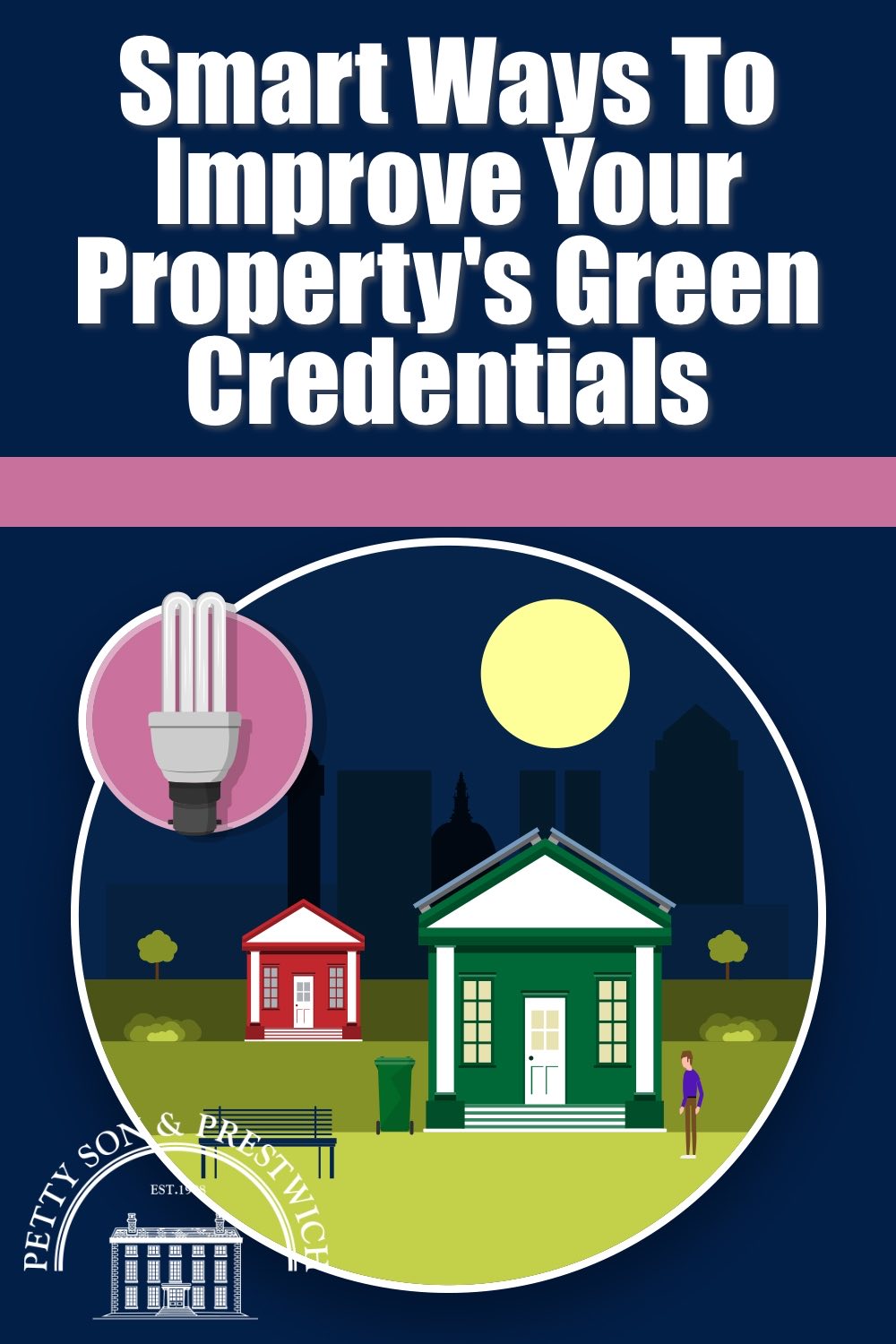There are a multitude of newfangled devices for the home on the market today which purport to be eco-friendly. However, in order to have a truly low-impact property, it’s vitally important to get the basics right first.
Gadgets and such can only do so much. If your property’s green foundations are a little shaky, then no amount of smart tech will lessen the impact your home makes on the environment. In short, it’s a case of first things first, and it’s those fundamental tasks we’re going to tackle today.
Let’s get to it!
Seal it up
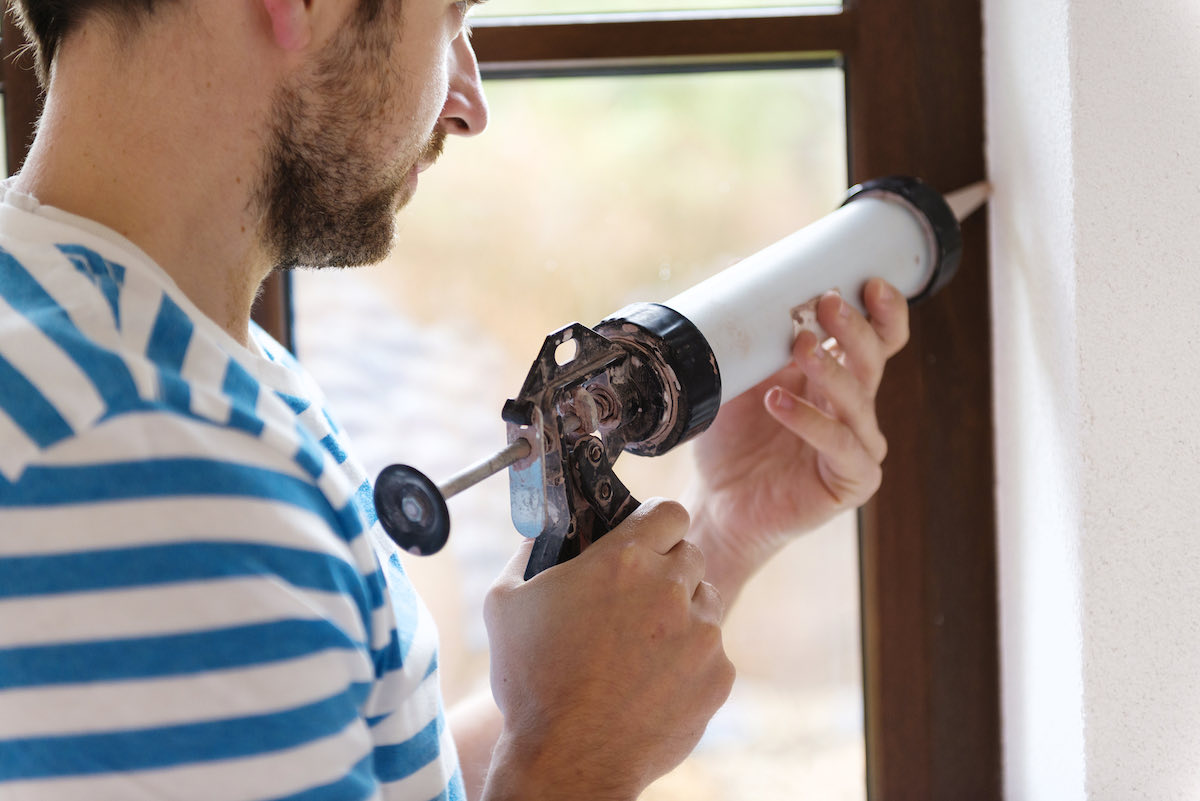
Cracks, gaps, draughty doors and windows are all guilty of making your property less environmentally sound than it should be. Thankfully, for the most part at least, these are relatively straightforward to fix and will often have the dual benefit of making your home look neater, too. A bit of caulk here and a splodge of filler there will usually do the trick.
If, however, your doors and windows are particularly old or were poorly fitted to begin with, you may want to consider getting them replaced. The initial outlay can seem eye watering at first glance, but they will pay for themselves eventually, both in terms of energy savings and the bump in your property’s value when you come to sell.
Insulation, insulation, insulation
With everything nicely sealed up, you’ll want to ensure your home isn’t leaking energy through unseen ‘gaps’ in its construction.
Take a property with cavity walls by way of an example. Your average semi-detached 1930s home without cavity wall insulation will lose a whopping 35% of its overall heat through those uninsulated walls!
Roofs, too, can be a massive energy leak, with 25% of your overall heat being lost if you don’t have sufficient loft insulation to keep the warmth in. Floor insulation can also reduce heat loss by around 10% as well, so you can see why correctly insulating your home is well worth considering.
Fix drips and leaks
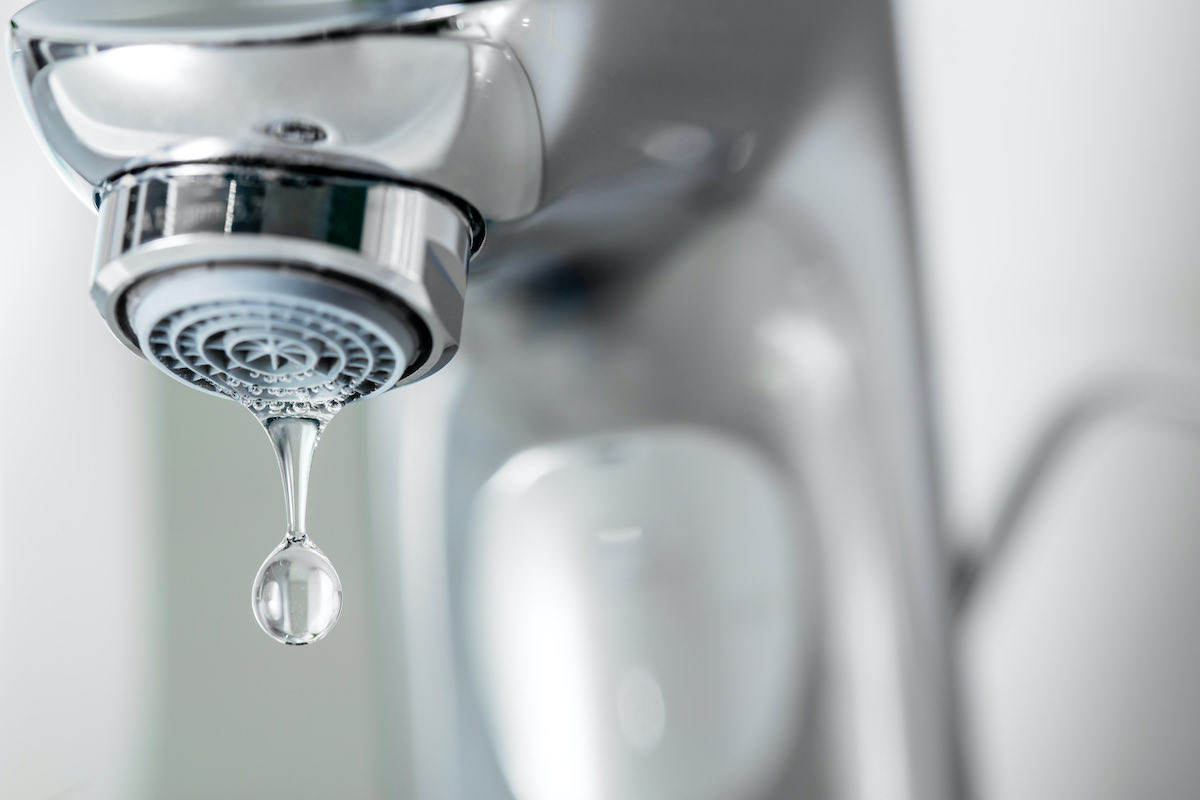
Leaks are never a good thing, regardless of which end of the spectrum they fall on. Dripping taps may be less dramatic than a burst pipe, but the effect they can have on your water consumption cannot be underestimated.
Did you know that a slow leak of just 3 drips per minute will waste in excess of 360 litres of over the course of a year? Certainly something to think about, especially if you have a water meter fitted. That tiny drip could end up costing you a pretty penny each and every year it’s left unfixed, so dig out the spanner post haste!
Install a dual-flush toilet
On the subject of saving water, old fashioned toilets are notoriously bad at preserving this precious resource. Thankfully, the dual-flush toilet came along in the 1980s to save the day!
This lavatory with a variable flush rate for different, ahem, scenarios can save the average household around 30% when compared to an old single flush system. Naturally, this figure will be dependent on the amount the toilet is being used and is reliant on the occupants selecting the correct flush when required.
However, when you consider that a home without a dual-flush toilet will flush away around 91 litres per person every day, there are definitely savings to be made by installing one of these in your home.
Rethink your energy sources
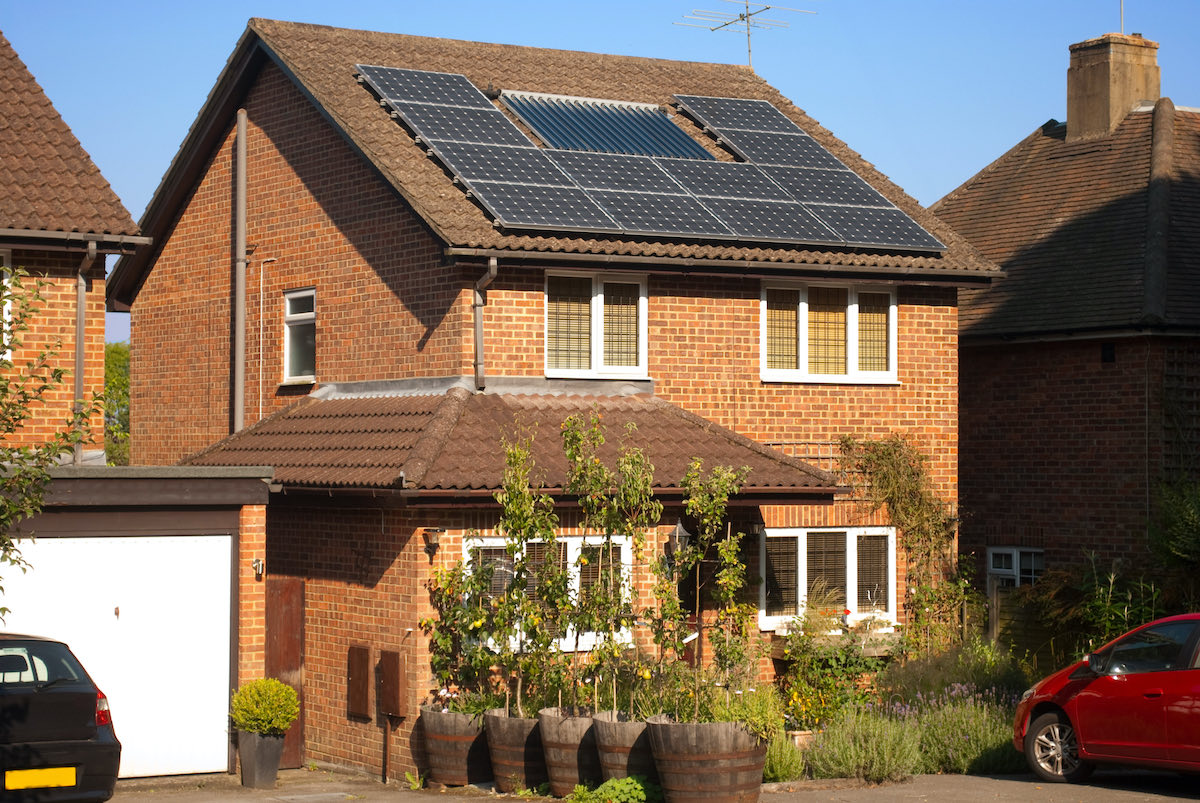
If you want to take things to a whole new level, rethinking your energy sources is certainly something to consider. Things such as solar panels, wind generators, and ground source heat pumps are all well within reach, even for average households.
Fossil fuels are, by their very definition, a finite resource, so looking towards a more renewable and responsible future makes a lot of sense.
Install a programmable thermostat
A far simpler and more immediate way to have an impact on your energy consumption is to have a programmable thermostat installed in your home.
Now, there has been a fair bit of controversy over programmable thermostats not delivering the savings they promised, but there’s no denying that they do have an impact, albeit a smaller one than the marketing team would like you to believe. A 10% to 30% saving is commonly touted, but a 5% to 7% saving is more realistic.
Change your bulbs
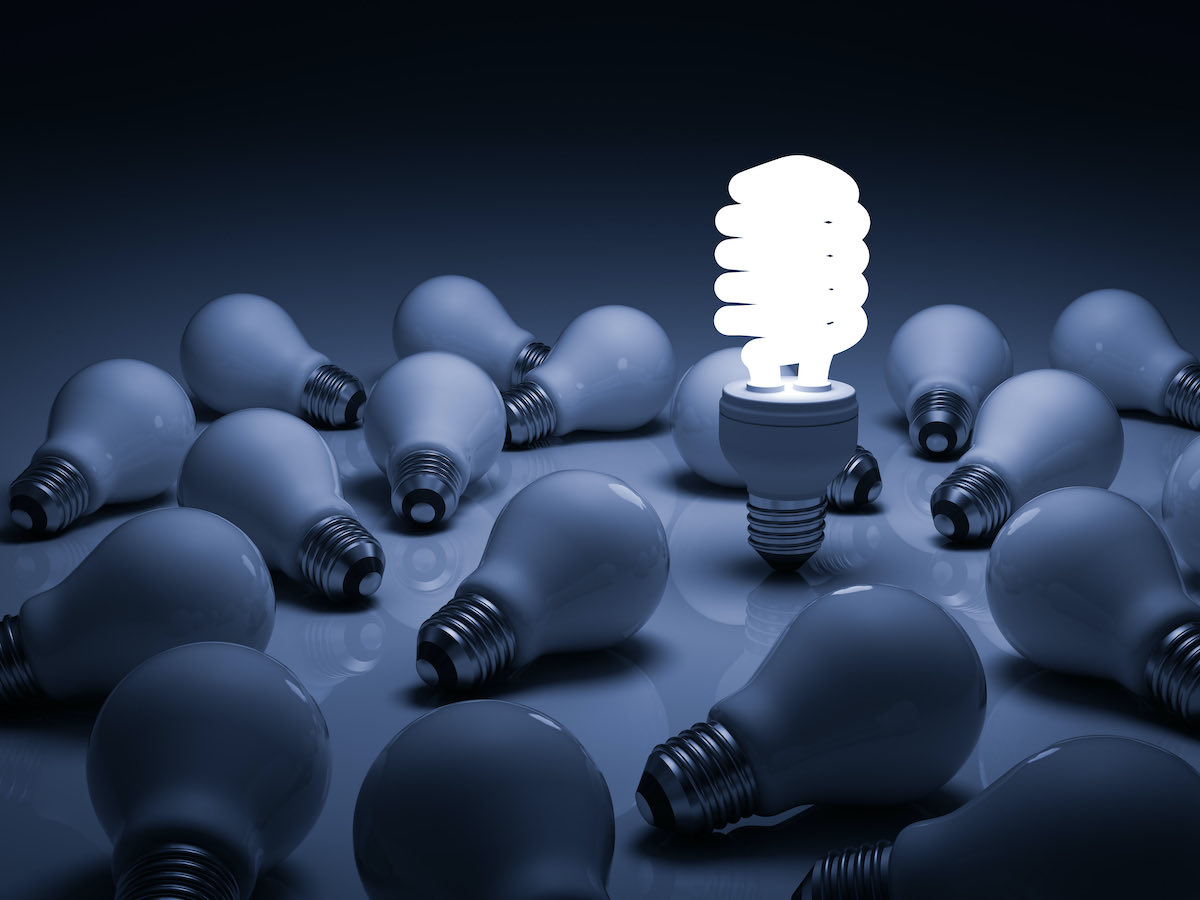
Another small job that can save you money and help lessen your energy usage is switching over to more energy efficient light bulbs. Ditching the old-fashioned incandescent bulbs and installing CFLs or LEDs can save as much as 80% and 90% respectively. Even a halogen bulb will beat an incandescent bulb by 30%.
While some things on this list will require the help of a contractor or keen DIYer, this is something pretty much everyone can do, so no excuses!
Redo your driveway
Moving outside the home now and onto the driveway (if you have one, of course). Paved driveways are extremely bad for the environment and are often blamed for the increase in urban flooding, but what can you do to reverse this trend?
Obviously, you’ll still want to park your car, so digging up the concrete and reverting back to plain soil is a no-no, but what about something in between? Thankfully, there are plenty of solutions that offer just that. Look out for things such as permeable gravel and grass paving. They are some of the best driveway surfaces for those looking for an eco-friendly option.
Grow your own
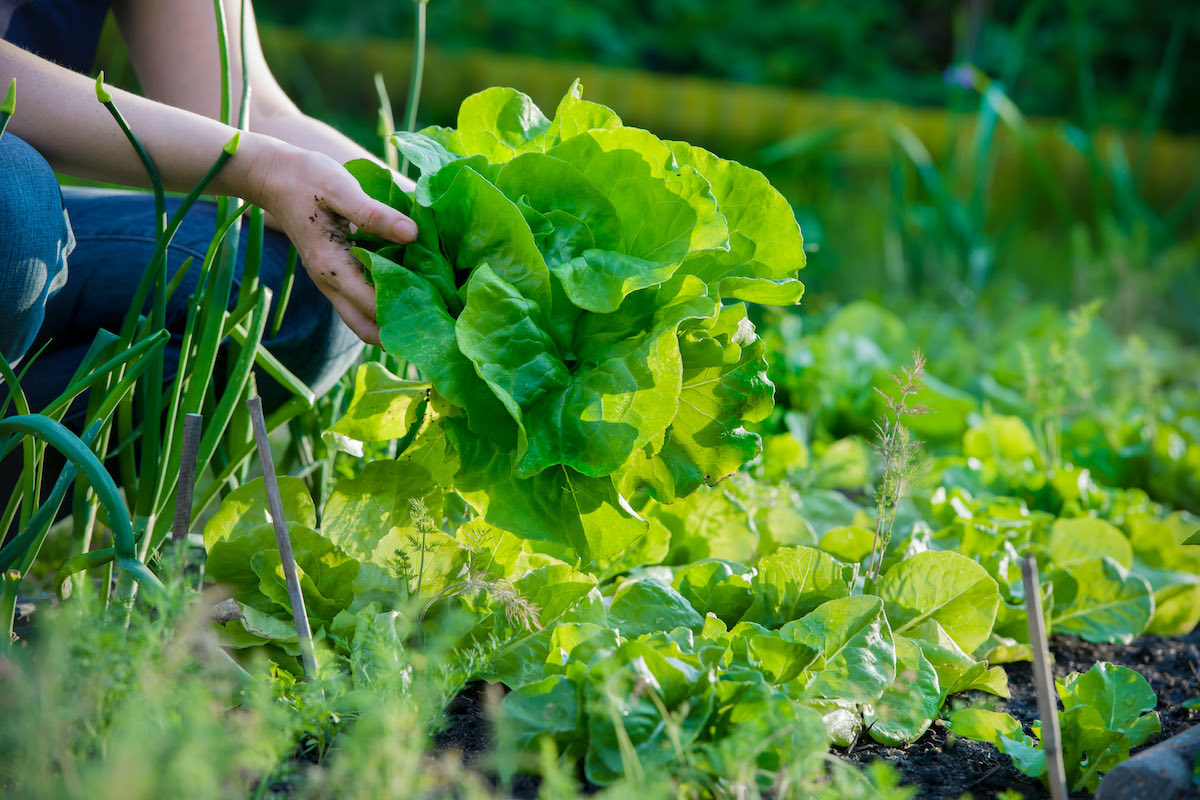
Turning even a small part of your garden into a herb and vegetable patch can make a considerable difference. Growing your own grub takes local food to a whole new level entirely!
You’ll likely see a drop in your grocery bill and could even end up making fewer visits to the shops because of your new hobby. Better yet, you can share your harvests with others and there are also suggestions that growing your food can have a positive impact on your mental health, too.
Start composting
Another garden goodie for you: starting a compost heap. The amount of recyclable waste thrown away by the average household is frankly astonishing, and you can do your bit to help lessen the load placed upon infrastructure and landfill by starting your own compost heap.
The benefits don’t stop there, though. Making your own compost means you’ll have an almost never-ending supply of nutrient-rich organic matter to help those veggies along and you’ll also notice your wheelie bins will smell considerably fresher, too!
Buy a water butt
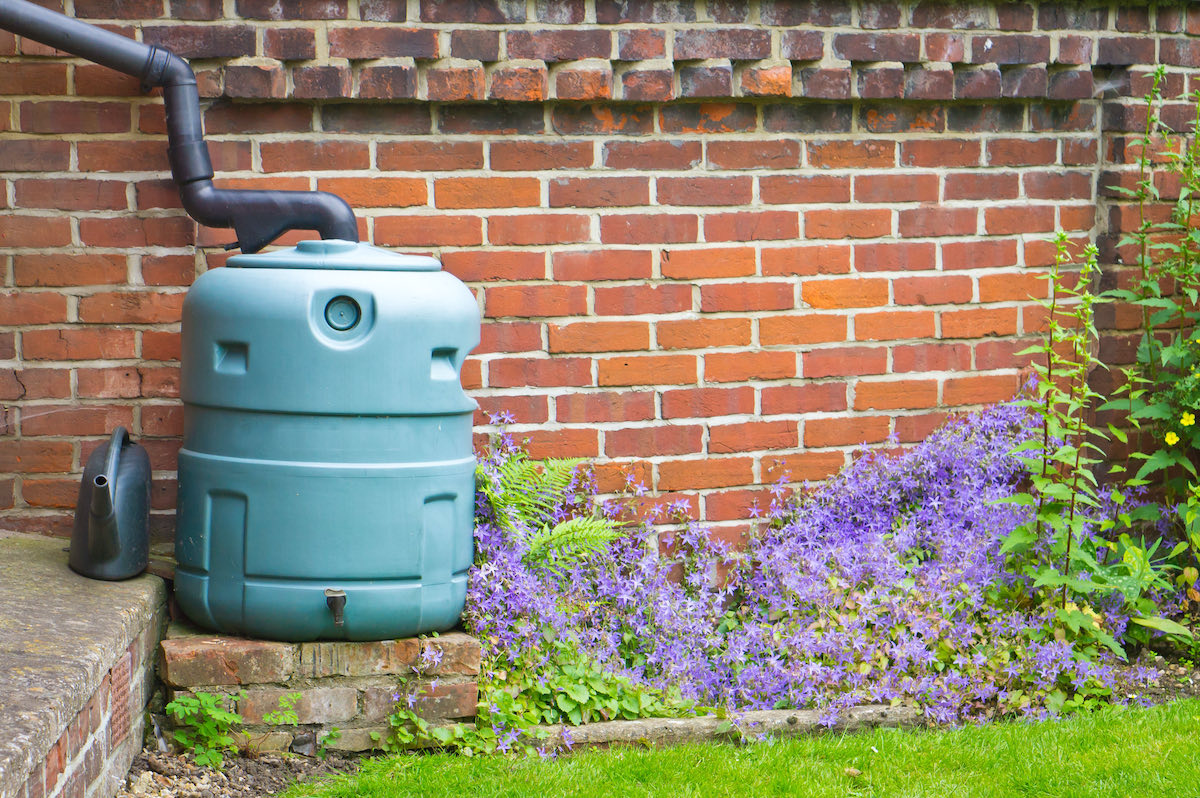
The aforementioned vegetable patch will not only need the compost you create with your new heap, it’ll also need water...a lot of water. Buying and installing a water butt is the ideal solution, and they’re not that difficult to put in yourself, either.
Reusing rainwater is not only ecologically sound, it’s also better for your pocket, too. An average garden sprinkler will work its way through around £1.50 per hour, which can add up to a significant amount over the course of an entire summer.
Get it right first time and hire local
Regardless of the job at hand, ensuring you buy the best products you can afford will stand you in good stead and lessen the amount of non-recyclable material heading its way to landfill. Buy cheap, buy twice, as the old saying goes.
Equally, if you need help performing any of the jobs above, you should always consider local tradespeople and contractors first. Doing so will support the local economy and help lessen your carbon footprint by reducing the amount of travelling to and from your property while the work is being carried out.
Making your home friendlier to the environment is not only beneficial to the planet, it can also be advantageous to your bank balance, too. We, here at Petty’s, are also finding increased interest in properties that are already environmentally sound, so making the above changes makes sense from that point of view as well.
If you are looking to enter the property market, either as a buyer or seller, and would like to find out why we’ve been E11’s number one choice of estate agent since 1908, give us a call. Our friendly team are always on hand to answer questions and offer advice on all things property. We look forward to hearing from you!
